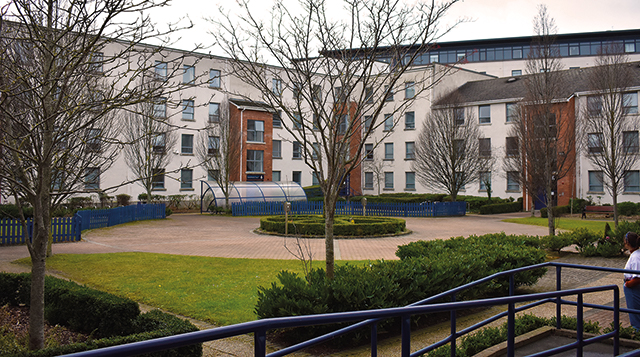
[dropcap]D[/dropcap]CU’s Campus Residences offers students “a radically different model for on-campus university accommodation” through the option to book flexible stays.
Speaking to the Irish Examiner, DCU President Professor Brian MacCraith said that Campus Residence’s new option of booking a flexible stay, “reflects the new circumstances for students and from our discussions with them, we are confident that it addresses their needs in an adaptable fashion.”
DCU’s short stay accommodation will allow students to book accommodation on a nightly, weekly or monthly basis depending on requirements and availability. The on-campus short stay accommodation is bookable till December 21, 2020.
According to DCU Campus Residences, short stay accommodation provisions for semester 2 will be available later in semester 1.
When booking a short stay, students must visit the DCU rooms website and register using their email address.
Students have the option of booking a single ensuite for €25 per night or a double ensuite for €26 per night. After each short stay booking there is a cleaning charge of €22 for the single ensuite and €24 for the double ensuite. The rooms available are for single occupancy only and guests are not permitted.
The short stay accommodation is only available on the Glasnevin campus and rooms are subject to availability.
Check-in for the short-term accommodation is after 3 pm each day from the accommodation reception on the Glasnevin campus, while check-out is at 10 am.
As part of your short stay with DCU Rooms, bed linen and a towel is provided with the room. But if you are staying for longer than 14 days, bed linen and towel change service charge will be included in the room rate.
Wifi is also accessible from all accommodation complexes.
According to DCU Campus Residences, the cancellation policy allows cancellations of up to 72 hours (3 days) in advance of check-in.
Due to the outbreak of Covid-19, most universities and third-level institutions in Ireland made the decision to move the majority of learning online. Meaning students have little, to no on-campus class hours, with the exception of a mix of face-to-face lab classes and practical sessions.
Third-level institutions decided that the best way to combat the virus would be to restrict the movement of students around campus and impose strict guidelines from the HSE, to ensure the virus doesn’t spread around the campus community.
As a result of this change to online learning, many students are able to complete their classes from home.
Shauna Burdis
Image credit: Alison Clair
Note: This article was reuploaded on 26/03/2021 due to a fault with The College View website.


